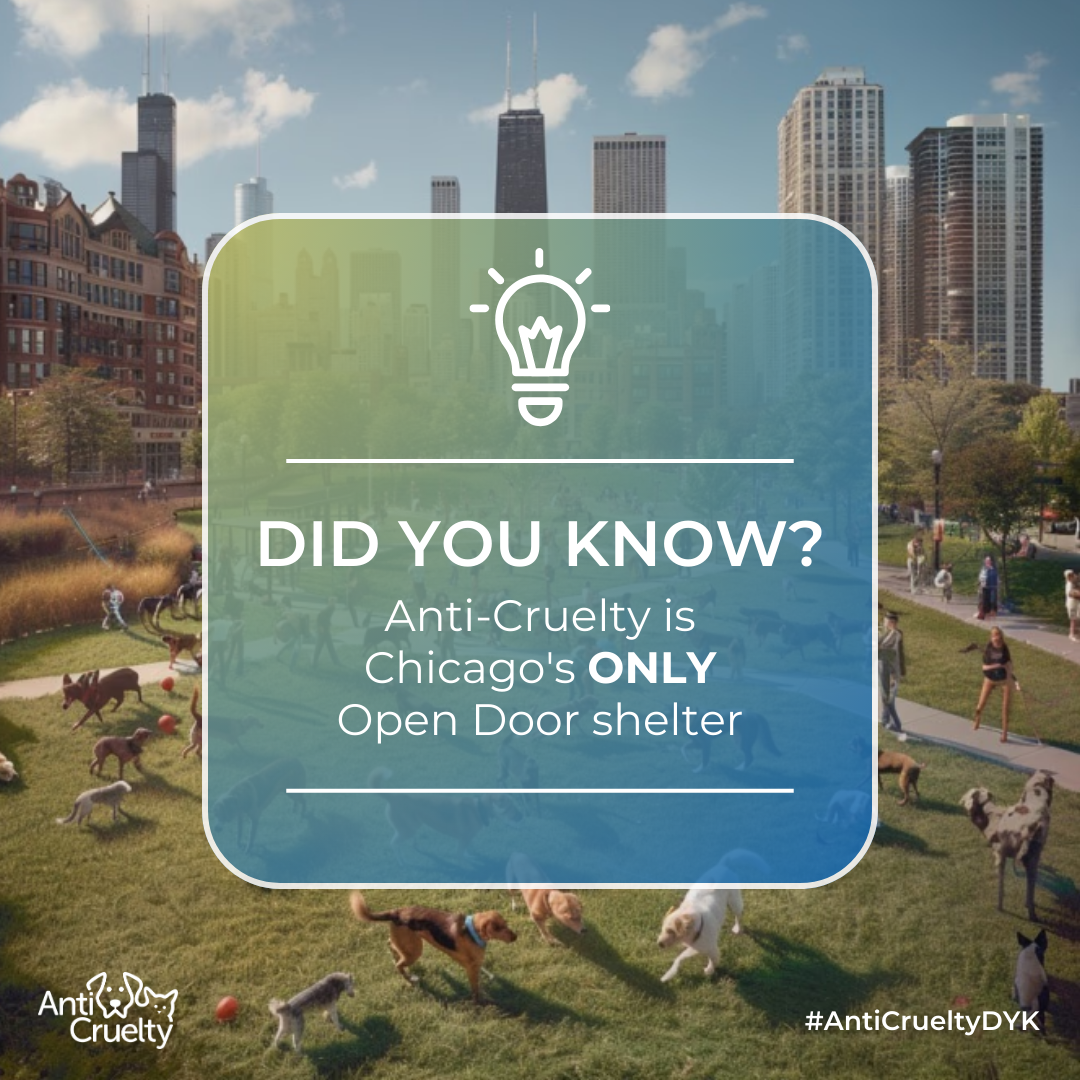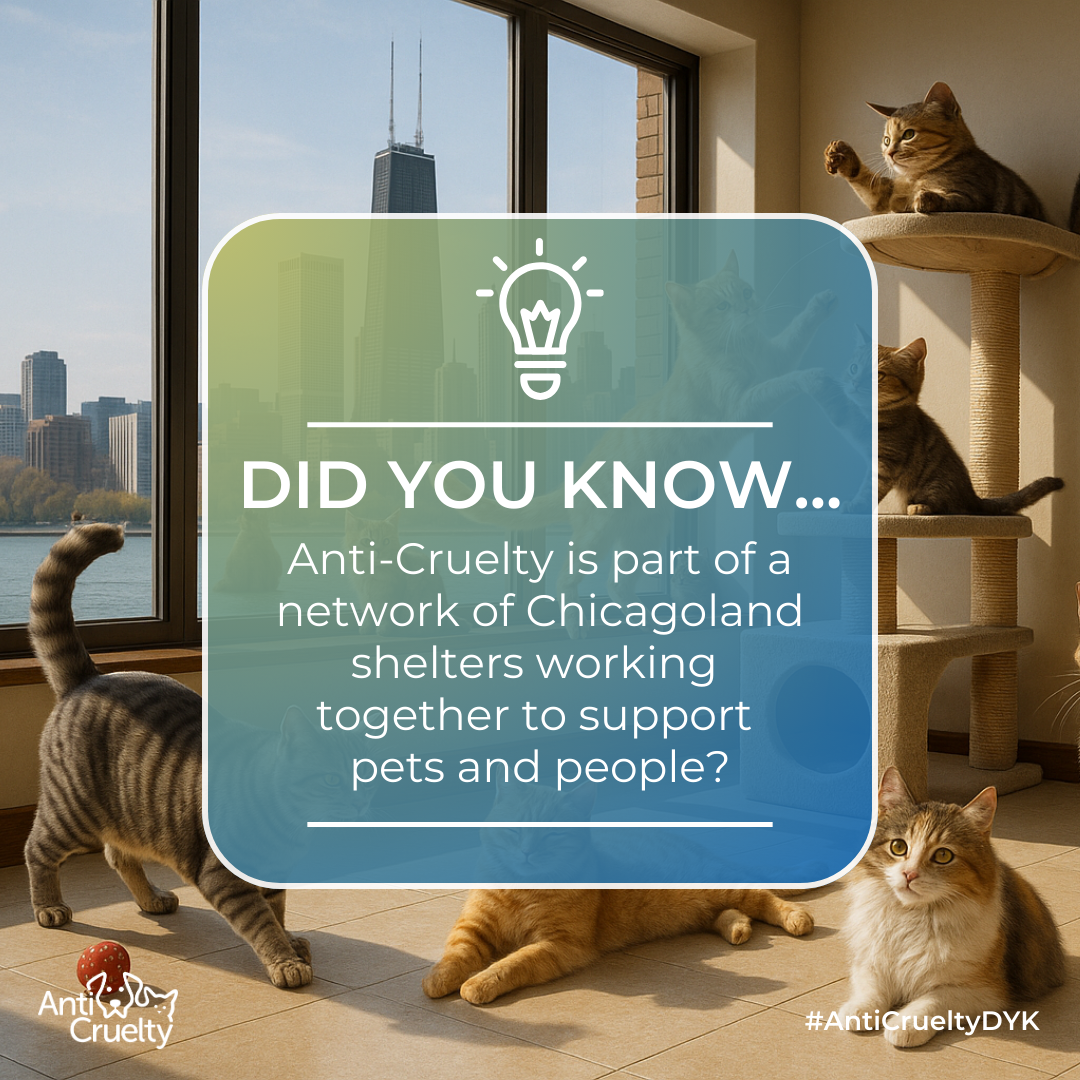Did You Know? Anti-Cruelty is Chicago's ONLY Open Door Shelter
For over 125 years, Anti-Cruelty has maintained an Open Door policy—no matter their species, health status, age, behavior, or background. This commitment not only helps pets and people but also strengthens Chicago's animal welfare ecosystem by diverting intakes from municipal shelters.
In 2024 alone, we provided shelter to 5,871 animals, including 4,520 stray and owner-guardian intakes from across Chicagoland. This is why maintaining our commitment to Open Door is crucial as we work toward building a humane Chicago.
Did You Know? Anti-Cruelty is part of a complex system of Chicagoland shelters working together to help pets and people
Animal shelters within a community come in several forms, each playing a vital role in supporting animals across the region. There are three main types of shelters you’ll find in an urban ecosystem like Chicago: Municipal shelters, private shelters, and foster-based organizations.
Private shelters, run by nonprofit organizations like Anti-Cruelty, focus on a variety of services including sheltering, like humane investigations, medical rehabilitation, adoption, education, and pet owner support services. These shelters are not government funded* and rely on private donations to operate. Some private shelters have limited admissions, which means they choose to serve only a specific population of pets based on their species, breed, age, or adoptability. Some private shelters, like Anti-Cruelty, are open admission, providing an Open Door to any animal in need.
Municipal shelters are government-funded and typically handle stray, lost, or surrendered animals, frequently also filling the function of animal control in the community. These shelters are usually “open admission” which means they will take in animals without discriminating for type, size, species, breed, or disposition.
Foster-based organizations operate without a physical facility, relying on volunteer homes to care for animals until they are adopted. Sanctuaries provide lifelong care for animals that are unlikely to be adopted due to age, health, or behavioral challenges. Together, these organizations create a safety net, ensuring animals across the community receive shelter and care.


